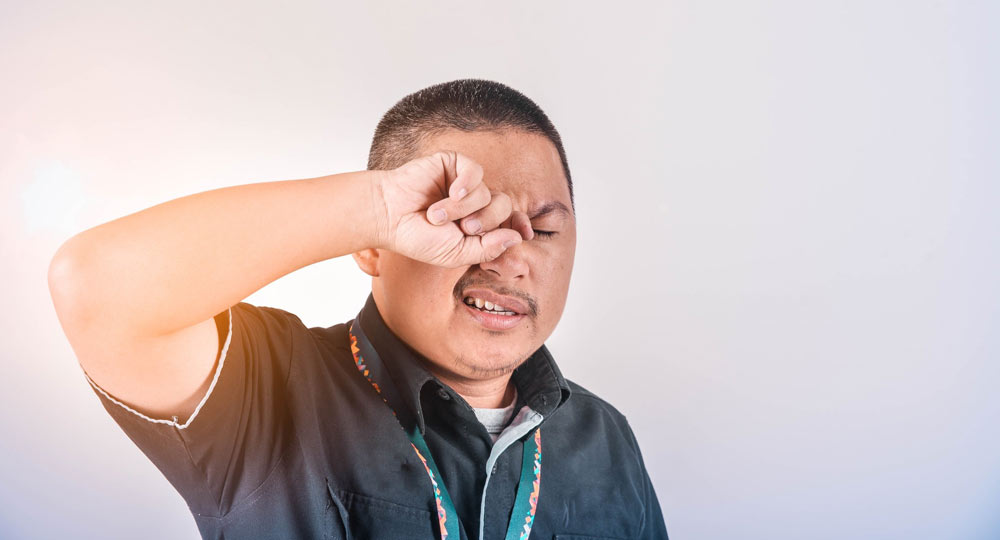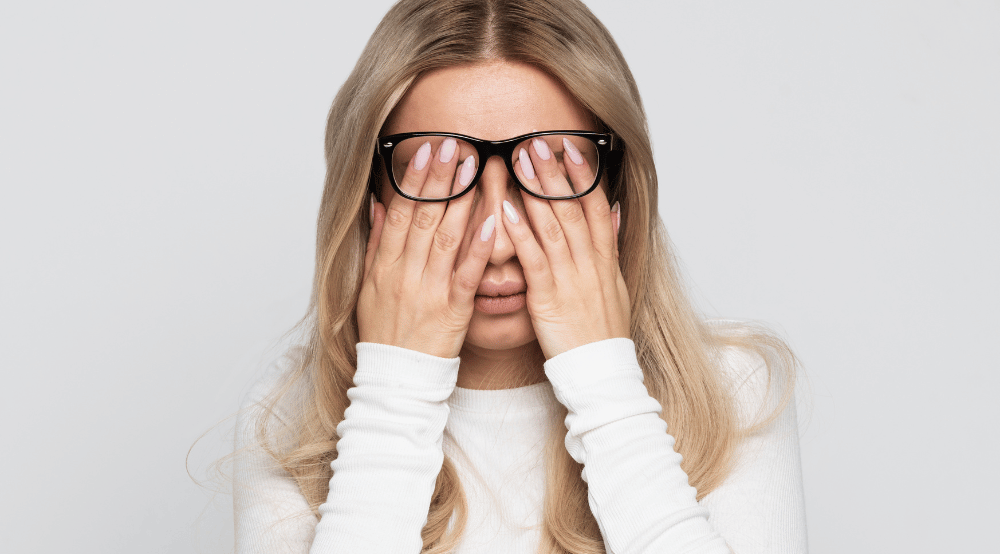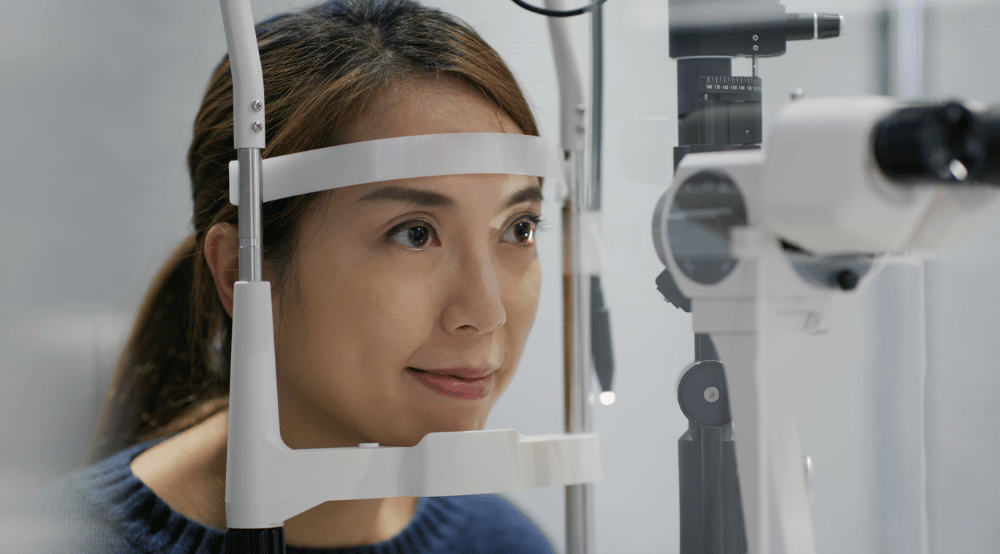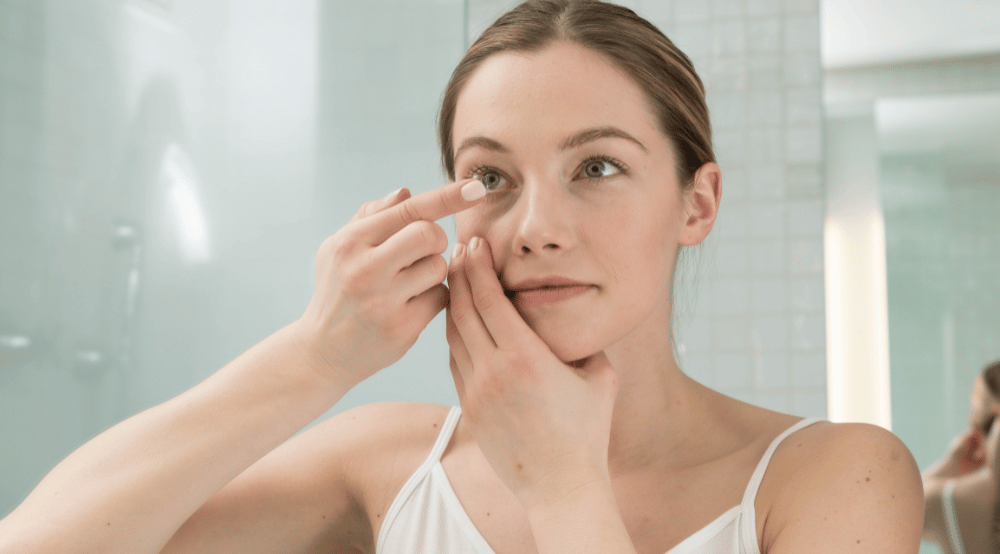Dry eye syndrome is caused by a chronic lack of moisture and lubrication of the eyes. Your eye’s tears keep the surface of the eye moist and lubricated, as well as wash away dust, debris, and other microorganisms.
What causes dry eye?
Typically dry eye occurs when there is a problem with your tears. Tears are made up of oily, watery, and mucin components. Any issue with those components could cause dry eye. It could be tear instability, tear film evaporation, or insufficient tear production. The only way to detect the cause of your dry eye is an eye exam.
Symptoms
- Burning sensation
- Itchy eyes
- Aching sensations
- Heavy eyes
- Fatigued eyes
- Sore eyes
- Dryness sensation
- Red eyes
- Photophobia (light sensitivity)
- Blurred vision
Who gets dry eye?
Dry eye can happen to anyone at any age. Each case of dry eye varies in severity and individual tolerance. However, there are certain factors which can increase your risk for dry eyes. These factors include:
- Computer use: Humans blink less frequently when working at computers, allowing for increased tear evaporation.
- Smoking: Causes eyes to dry over time and is the root of various other eye problems.
- Aging: Dry eye syndrome is more common after the age of 50.
- Menopause: Women who have completed menopause are at a higher risk for dry eye than men of the same age.
- Health conditions: Certain diseases have a higher risk of contributing to dry eyes such as diabetes or thyroid diseases.
- Medications: Prescription and nonprescription medicines can cause dry eye as a side effect.
Visiting the doctor
Getting an eye exam by an eye doctor is the only way to know for sure that you have chronic dry eye syndrome. Symptoms of dry eye can vary significantly from person to person and may even be symptoms of other eye problems. Personal perception of dry eye severity does not indicate whether or not an individual has chronic dry eye syndrome. Some individuals with mild dry eye may feel their symptoms are very bothersome, while some individuals with severe dry eye may not consider their symptoms significant.
If you are showing symptoms of dry eye, schedule an appointment with our office as soon as possible. The only way to know the medical severity of your dry eye is through an eye exam. Our dry eye specialist in Waitsfield will assess your eyes and determine what’s causing your symptoms.




